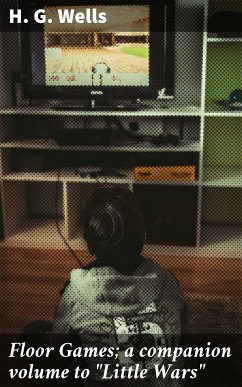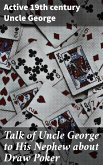In "Floor Games: A Companion Volume to 'Little Wars,'" H. G. Wells invites readers into the imaginative realm of tabletop warfare designed for children and adults alike. This playful yet thoughtful examination of strategy, creativity, and play integrates both whimsical prose and illustrations, unveiling the intricate rules and narratives behind indoor games that blur the lines between reality and fantasy. Wells'Äôs writing reflects the Edwardian influence of his era, adorned with a keen sense of the changing relevance of childhood recreation amidst the backdrop of an emerging industrial society that increasingly valued mechanized playthings over traditional pastimes. H. G. Wells, an influential figure in speculative fiction and social commentary, was also a fervent advocate for the benefits of play in a child's intellectual growth. His experiences as a teacher and tutor, along with his early fascination with science and invention, propelled him to create this guide, aiming to cultivate the imaginative capabilities of young minds in an increasingly complex world. Wells'Äôs literary career flourished amidst the rise of modernism, and he often sought to challenge the norms of society and define the role of education within it. "Floor Games" is a compelling exploration for both educators and parents alike, providing innovative ideas for fostering imaginative play in children. It appeals to those interested in the intersection of education and recreation and invites readers to engage with the profound benefits of imaginative gameplay, making it a vital addition to any library.
Dieser Download kann aus rechtlichen Gründen nur mit Rechnungsadresse in A, B, BG, CY, CZ, D, DK, EW, FIN, F, GR, H, IRL, I, LT, L, LR, M, NL, PL, P, R, S, SLO, SK ausgeliefert werden.









